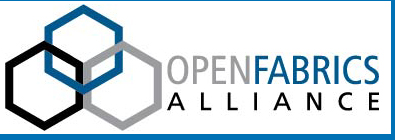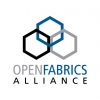The OpenFabrics Alliance (OFA) Workshop is now just over four weeks away, and plans are proceeding at a rapid pace. The Technical Program Committee has received a large number of session proposals to be presented at the workshop, with quite a few more proposals than available slots. It’s now the committee’s unenviable task to choose the best sessions from among an excellent field in order to meet the needs of workshop participants.
Notice that I used the word ‘participants’, instead of a more generic word like ‘attendees’, or ‘audience’. That’s because the workshop, by design, is intended to be just what its name implies – a workshop that engages everyone present in the creative act of pushing forward the development of network technologies to enable current and future generation computing systems.
Without exception, the proposals received this year were uniformly high in quality. We received proposals in all 12 topic areas including subjects on current deployments of RDMA in today’s systems, developments in network APIs, and new and advanced network technologies. As always, the OFA is focused on building and maintaining the state of the art in network technology while pushing forward into the next generation and the proposals received reflect that underlying goal.
As you might expect, there were multiple proposals from some of the largest actors working in the field of computer networking. But also notable this year was that there were proposals from 23 separate companies and organizations. All that for a workshop for which there are roughly only 50 slots available. Beyond the proposals you would expect dealing with the maintenance and development of OpenFabrics Software, there are exciting proposals related to Persistent Memory, Accelerators and GPUs, and Data Intensive Computing and Analytics. Also, new this year is a section devoted to developments in moving RDMA technology into the kernel. I can’t describe any particular proposals since the deadline for finalizing the list of accepted proposals is still a few days away, but it’s fair to say that the list is both broad and deep.
It might sound like a lot to absorb in four short days, but it’s all in the service of a single goal – to enable the development of networks that simply work better and to advance the state of the art so computer systems continue to meet the evolving needs of those who use them.
I’m looking forward to seeing everyone in Austin in March.
Kind regards,
Paul Grun
OpenFabrics Alliance Vice Chair


